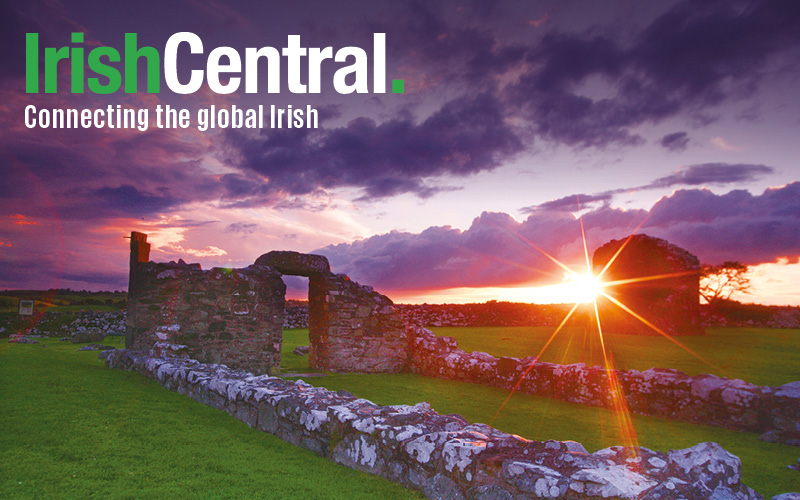The New York Times just published possibly the worst op-ed piece on Ireland I have ever read, including those in British newspapers.
Did you know the Irish hardly existed and the 1916 leaders invented a Gaelic Ireland that never previously was present?
That’s according to the New York Times op-ed written by a “historian” Barry Kennerk who no one has ever heard of.
His op-ed, masquerading as a piece of scholarship, states “The Irish always had a British heritage.”
The only Barry Kennerk I could find works at the Children's Hospital in Temple Street, Dublin and is a postgraduate student affiliated with St Patrick's College, Drumcondra, researching the Fenians. His only book, "The Railway House - Tales From an Irish Fireside," was published in 2008.
Are those the credentials necessary for an insightful view of the Rising?
The New York Times should at least have picked a decent revisionist historian if it was going to slate the Easter Rising, which of course it delighted in doing. After all, when it happened 100 years ago they were among the first to call for the execution of the leaders.
Before 1916, according to Kennerk, there was no sense of Irish national identity. Of course not. The United Irishmen, Wolfe Tone, Robert Emmet, Daniel O'Connell, the Young Irelanders, the Fenians were all a figment of imagination and historical nonentities. They were part of an “invented Ireland,” says Kennerk
He says Easter 1916 was not about expelling “a foreign foe” (has he read the Proclamation?) because Ireland, you see, was really British.
This is first grade nonsense.
Of course he believes those British rulers were benign, such as during the Great Hunger, and putting down the silly insurrections from time to time.
(Wonder if he heard of the pitch cap where Irish prisoners had boiling oil poured on their heads and their brains literally sundered from their bodies – but I digress.)
Kennerk writes that the notion of “Ireland for the Irish” was rooted in the political turmoil of the late 19th century (ignoring Wolfe Tone, Daniel O'Connell, Thomas Francis Meagher etc.).
"Ireland for the Irish" – what a ridiculous idea! What next, China for the Chinese?
The Fenians, we are told, never had much of a cultural program. That’s right, the British pretty much assured that by driving one million to America during the Famine, creating massive land clearances, and allowing one million peasants to die of hunger.
In the aftermath of all that, it is amazing the Fenians did not find time for inventing a 'Riverdance' or two as 100,000 of them plotted war against their oppressor.
Kennerk says the Irish needed an identity that “set them apart from other Britons.”
That is the most absurd sentence in the piece. The Irish were not other Britons and never conceded to be Britons as their religion alone was fundamentally different and their thirst for self-determination as Irish repeatedly expressed itself in every generation.
Indeed there was a reason conscription was never introduced in Ireland as there would have been violent opposition from Irish who did not want to die in Britain’s world war.
The Irish cultural revival is treated by Kennerk as a ploy set up by Arthur Griffith. He ignores the historical reality that decades before, Douglas Hyde, later Ireland’s first president, had set up the Gaelic League leading to the Irish revival.
The poetry of Yeats, the Abbey Theatre, the broad sweep of cultural self-definition that swept Ireland in the early 1900s was all a con job aimed at insurrection, he maintains, not an ancient culture re-establishing itself.
How much happier we might all have been if we stayed obedient British subjects and embraced ‘God Save the Queen.’
According to Kennerk, the ultimate statement of this nefarious culturization of the Irish “came in the revolutionaries’ 1916 Proclamation that the British were a 'foreign people.'”
Imagine that! The imperial rulers – with no mandate to rule in Ireland – were suddenly named and shamed as a foreign people. I mean, we were always as British as Queen Victoria obviously.
As proof of the Irish love affair with the British, Kennerk names writer Brendan Behan having British friends and a World War I soldier from Ireland describing himself as British.
Imagine that too! Ordinary Irish and British people often got along, so therefore, Britain was never an imperial power.
A century ago much of Ireland identified with a modern, progressive Britain (or United Kingdom), he claims.
Ah yes. We were right there with the modern mass murderers of the imperial era in Kenya, Ireland and many other imperial outposts. They were good lads and the Irish were really British.
Kennerk writes, “During the early years of the Irish Free State, the reaction against empire morphed into anti-British sentiment, particularly thanks to the trade war of the 1930s, when a popular slogan, borrowed from Jonathan Swift, was 'burn everything British but their coal.'”
No mention of partition, of course, as the focus and cause of the anti- British sentiment. It is not even mentioned.
These days, Kennerk argues, the Irish and British are closer than before. Yes, they are, due in huge part to the process of peace in Northern Ireland and at last, the lack of conflict.
But he doesn’t mention such huge historical shifts. He says people find common ground in the goods and services they buy, the websites they visit and the TV shows they watch. The shift in Anglo-Irish relations has “an economic as well as a political basis.”
By his definition the Irish may be Chinese as well as we know they like to buy lots of electrical goods to.
Kennerk warns we must not be anti British during the Rising commemorations.
No we must tell the truth, that's all, of what really happened. That's something that has obviously eluded Barry Kennerk--and The New York Times..




Comments